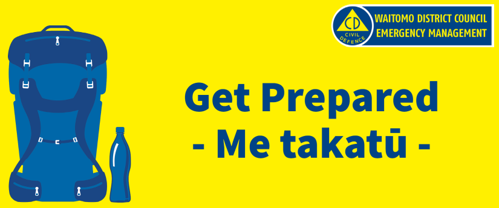Planning for an Emergency

Emergencies can happen anytime, anywhere. It’s up to you to take steps to make sure you’re prepared.
Make a plan with your family/flatmates/friends to get through an emergency. Think about the things you need every day and work out what you would do if you didn’t have them.
Make a household emergency plan
A household emergency plan lets everyone in your household know what to do in an emergency and how to get ready. Having a plan helps make actual emergency situations less stressful.
Make a plan with your whānau to get through an emergency. Think about the things you need every day and work out what you would do if you didn't have them.
Make sure your home emergency plan also lines up with emergency plans for your work, school, and other places where you spend a lot of time.
Fill in the form then print it out, stick it on the fridge and make sure everyone knows the plan. Or save it as a PDF and email it to your whānau.
Before your start
Make sure you have considered all the needs of your household including:
- Disabled people
- Babies and young children
- Pets and other animals
Learn more on how to get ready at home
--
Get ready at work
Emergencies can happen anytime, including during business hours. You can’t predict when they will happen, but you can take actions to make your business more prepared.
Identify the risks
Find out what the risks are and how they can impact on your business. Risks include natural hazards, health emergencies and utility failures.
If you have staff, talk to them about the risks they think are most relevant to your business.
Make an emergency plan for your business
Businesses have an obligation to be prepared for an emergency. In most cases we can’t predict when an emergency will happen. But we can make plans to make sure our staff are safe, our financial and personal losses are reduced and we are able to get back to business as soon as possible.
Your plan should include the following.
- Emergency procedures for fire, earthquake, tsunami and other hazards.
- Assembly points, wardens and first aid training.
- How to contact staff, suppliers, clients and insurance providers.
- Alternative arrangements if you are unable to access your premises, files, etc.
Talk to your disabled staff. Find out what support they might need if there's an emergency. Also think about how you might need to help any visitors who have a disability.
Learn more on how to get ready at work
--
Get your marae ready
Marae preparedness planning enhances resilience and safety of marae, taonga and iwi. It helps te hau kāinga and te haupori understand and manage their risks.
The Marae Emergency Preparedness Plan is designed to help marae be as prepared as possible in the event of a natural disaster or emergency.
The Marae Emergency Preparedness Plan helps marae be as prepared as possible for a natural disaster or emergency. It encourages whānau, hapū and iwi to:
- think about the possible impacts of natural disasters, and
- recognise who could be called upon in the event of an emergency.
Work through the marae emergency preparedness plan to plan out what your marae will do.
Find a link on the Get Ready website
--

Get your school ready
Schools play a large role in keeping the community safe. Find information about school responsibilities and how to teach students the knowledge and skills they need to be more prepared for an emergency.
What's the Plan Stan?
What’s the Plan, Stan? is a free resource to support schools, teachers and students to develop the knowledge and skills to prepare for emergency events.

